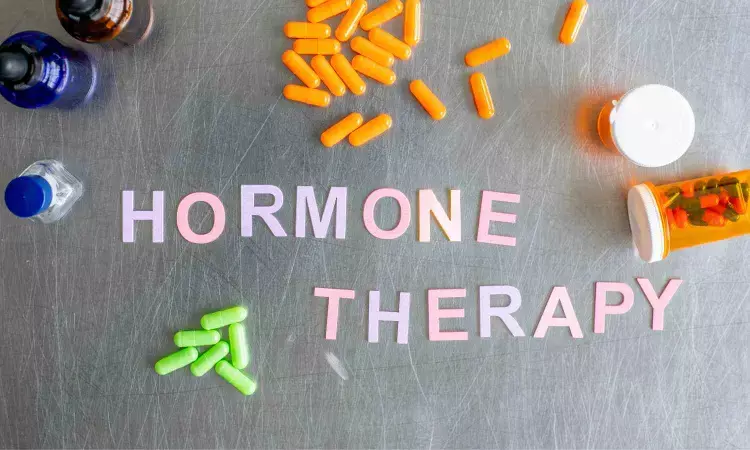- Home
- Medical news & Guidelines
- Anesthesiology
- Cardiology and CTVS
- Critical Care
- Dentistry
- Dermatology
- Diabetes and Endocrinology
- ENT
- Gastroenterology
- Medicine
- Nephrology
- Neurology
- Obstretics-Gynaecology
- Oncology
- Ophthalmology
- Orthopaedics
- Pediatrics-Neonatology
- Psychiatry
- Pulmonology
- Radiology
- Surgery
- Urology
- Laboratory Medicine
- Diet
- Nursing
- Paramedical
- Physiotherapy
- Health news
- Fact Check
- Bone Health Fact Check
- Brain Health Fact Check
- Cancer Related Fact Check
- Child Care Fact Check
- Dental and oral health fact check
- Diabetes and metabolic health fact check
- Diet and Nutrition Fact Check
- Eye and ENT Care Fact Check
- Fitness fact check
- Gut health fact check
- Heart health fact check
- Kidney health fact check
- Medical education fact check
- Men's health fact check
- Respiratory fact check
- Skin and hair care fact check
- Vaccine and Immunization fact check
- Women's health fact check
- AYUSH
- State News
- Andaman and Nicobar Islands
- Andhra Pradesh
- Arunachal Pradesh
- Assam
- Bihar
- Chandigarh
- Chattisgarh
- Dadra and Nagar Haveli
- Daman and Diu
- Delhi
- Goa
- Gujarat
- Haryana
- Himachal Pradesh
- Jammu & Kashmir
- Jharkhand
- Karnataka
- Kerala
- Ladakh
- Lakshadweep
- Madhya Pradesh
- Maharashtra
- Manipur
- Meghalaya
- Mizoram
- Nagaland
- Odisha
- Puducherry
- Punjab
- Rajasthan
- Sikkim
- Tamil Nadu
- Telangana
- Tripura
- Uttar Pradesh
- Uttrakhand
- West Bengal
- Medical Education
- Industry
Hormone therapy can significantly reduce insulin resistance, shows new meta-analysis

Menopausal women are at greater risk of insulin resistance as a result of declining estrogen levels. Previous studies evaluating the potential benefits of hormone therapy on insulin resistance have produced mixed results. However, a new meta-analysis of 17 different randomized, controlled trials suggests hormone therapy can be beneficial. Results of the meta-analysis will be presented at the 2024 Annual Meeting of The Menopause Society in Chicago September 10-14.
Insulin resistance can occur in men or women, but menopausal women are at greater risk because, as estrogen levels fall during the menopause transition, the body can become less responsive to insulin. A diagnosis of insulin resistance is considered serious because it can be a precursor of prediabetes, type 2 diabetes, and metabolic disorders.
A number of studies have previously attempted to determine the potential positive effect of hormone therapy on insulin resistance. However, those studies produced inconsistent results. But in this new metaanalysis of 17 unique randomized, controlled trials that covered more than 29,000 participants between 1998 and 2024, it was found that hormone therapy significantly reduced insulin resistance in healthy postmenopausal women without metabolic diseases including diabetes, hypertension, and cardiovascular diseases.
Cumulative totals of the 17 different trials included 15,350 participants who were randomized to hormone therapy including estrogen alone or estrogen plus progestogen and 13,937 who were randomized to placebo. The mean age of the study population ranged from 47 to 75 years, and treatment duration ranged from eight weeks to two years.
“Our analysis showed that both types of hormone therapy, including oral and transdermal routes, significantly reduced insulin resistance in healthy postmenopausal women, although estrogen alone was associated with a more prominent reduction when compared to a combination hormone therapy,” says Dr. Xuezhi (Daniel) Jiang, lead researcher from Reading Hospital Tower Health and Drexel University College of Medicine in Pennsylvania.
More detailed results will be discussed at the 2024 Annual Meeting of The Menopause Society as part of the oral abstract presentation titled “Effect of hormone therapy on insulin resistance in healthy postmenopausal women: A systematic review and meta-analysis of randomized placebo-controlled trials.”
“Hormone therapy is an effective treatment for many bothersome menopause symptoms, including hot flashes,” says Dr. Stephanie Faubion, medical director for The Menopause Society. “This new metaanalysis is important as declining estrogen levels in menopausal women put them at greater risk for insulin resistance and hormone therapy could be beneficial in reducing insulin resistance in these women.”
Dr Kamal Kant Kohli-MBBS, DTCD- a chest specialist with more than 30 years of practice and a flair for writing clinical articles, Dr Kamal Kant Kohli joined Medical Dialogues as a Chief Editor of Medical News. Besides writing articles, as an editor, he proofreads and verifies all the medical content published on Medical Dialogues including those coming from journals, studies,medical conferences,guidelines etc. Email: drkohli@medicaldialogues.in. Contact no. 011-43720751


